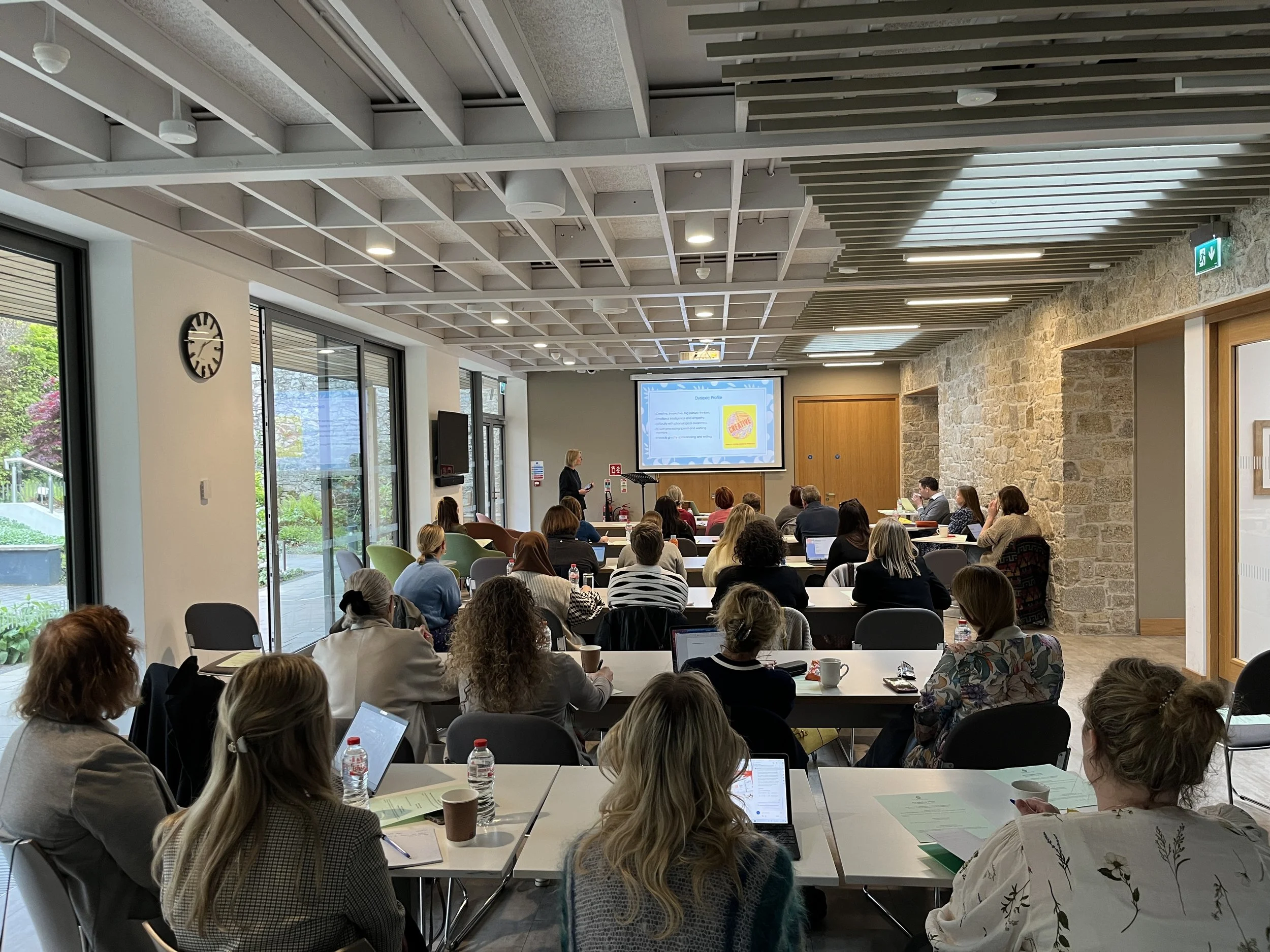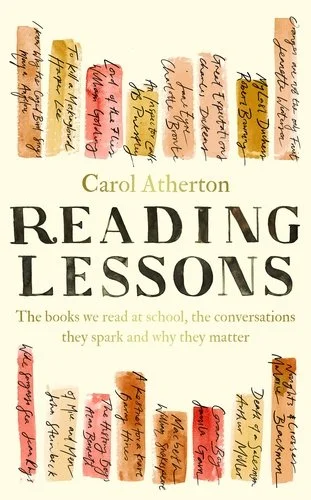English Meet 2024: a report
Last night the third English Meet was held in Whispering House at St Columba’s College. Six current classroom teachers from around Dublin presented on areas of their practice. The slides from the presentations can be found at the bottom of this post. It was another most uplifting event, with so much that was interesting and helpful.
Annie Donnelly started things off on ‘Supporting Students with Dyslexia in the Post-Primary English classroom’ She has been taking a course to improve her knowledge in this area as an English teacher, and shared 10 tips when teaching dyslexic students. These included using audio for reading, sharing notes electronically and strategies for vocabulary and spelling. As with all presenters, see the slides further down for full details.
Miriam Barragry opened up ways to support creative writing, which often teachers do not study at third-level. There are stumbling blocks for students too. Strategies might include prompts, and Miriam gave examples of writing tasks on place, character, and how to use the senses fruitfully. She referred to resources such as Stanley Tucci’s book Taste: my life through food and Joseph Fasano’s The Magic Words. Humorous writing is always a great option too (think of David Sedaris, Marina Hyde and Patrick Freyne).
Michael Browne spoke thoughtfully about the decline of the poetry anthology, particular in the Junior years. In a random selection of schools which have booklists on their websites, he did not come across a single poetry anthology, and so he has started creating his own anthologies on Google Docs. He believes that there has been a disappointing change of emphasis in recent years from the Junior Certificate, in which literature was central, to a fragmentation in the Junior Cycle, and a position in which the curriculum is ‘a mile wide and an inch deep’ (William Schmidt). He referred to Kate Barry’s post ‘Literature - What’s the Point?’ -
You won’t ever find anyone (unless you go to Florida) who says they are against the teaching of literature. Yet the place of literature is increasingly on the margins. English as a subject overall has lost its identity as a core subject and, even more strikingly, literature now occupies less and less space within this reduced space.
Modern textbooks are ‘a static manifestation of the attention economy’. See also my previous post on the design of poetry textbooks, which aligns with the points Michael made. [Update, May 8th: see Michael’s post on his First Year anthology].
Aoife Fleming addressed a key issue for all English teachers in her presentation ‘Reducing the Feedback Look’, especially in how whole-class feedback might be employed in class, and how feedback sheets can be used. She quoted John Hattie on the importance of ‘dollops of feedback’. The benefits of whole-class feedback are considerable, especially in the consolidation of learning before moving forward. There are examples of this process in the slides, and you can download her sheets in the following links and create duplicates for modification: Feedback Sheet: 2017 Hamlet / Feedback PCLM essay grid Hamlet 2005 / Feedback Sheet: 2014 Mock Question on Seamus Heaney.
Rebecca Morrin presented on Literacy Word Builders, and on how these can improve literacy and build vocabulary. She gives her students a series of vocabulary sheets which they keep in their books, and which help them build up a richness of words by looking at variations of basic stems (such as ‘thought’ or ‘good’) up to the most extreme version. This makes it easier for students to understand how and when to use specific language by including a simple version of the word that they are already familiar with. It can also be useful with peer- and self-assessment.
Finally, I shared my approach to revising the comparative module in Sixth Year. There are considerable cognitive challenges in this area, with students trying to deal with different texts, many characters, themes, genres and comparative modes, all within the Leaving Certificate marking scheme. I try to develop across 4 weeks a truly ‘comparative mindset’ by having students present to their peers in class, with the latter taking Cornell notes, while I keep an eye on as ‘quality control’. Students often start too fast, and learning to present more slowly and clearly embeds a deeper level of understanding.
Also mentioned: Carol Atherton’s recent book Reading Lessons: the books we read at school, the conversations they spark and why they matter - my response, and Andrew Atherton’s Experiencing English Literature; shaping authentic student response in thinking and writing. My review of Alice Winn’s novel In Memoriam.
Sincere thanks to all the presenters, and all who attended.
Registration for webinars:
Light and dark in King Lear: Tuesday 7th May at 7.00pm via Wexford Education Centre.
Claire Keegan’s Small Things Like These: Tuesday 10th September at 7.00pm via Tralee Education Centre.
Revising King Lear: Wednesday 16th October at 7.00pm via Tralee Education Centre.
Slides: PDF download.


